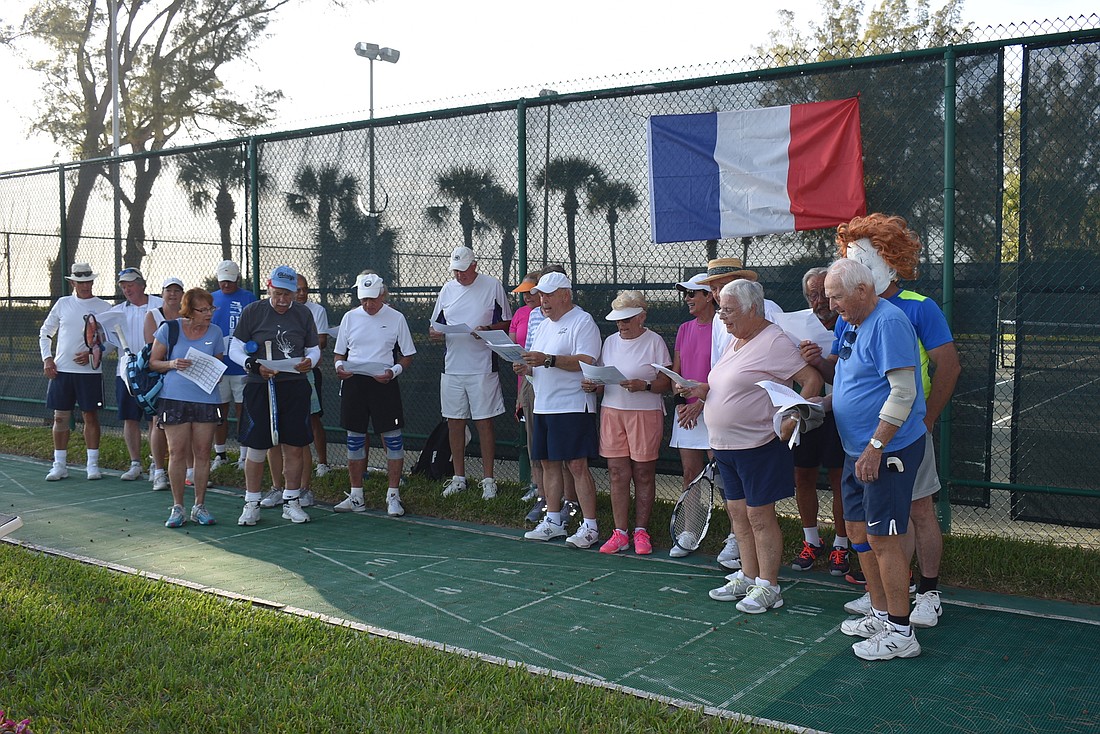- November 24, 2024
-
-
Loading

Loading

To English-speaking ears, even cursing in French sounds elegant.
And at the 2020 French Open, that’s all players could say as they battled on the courts of Stade Roland-Garros. Oh, wait. Wrong French Open.
The fifth annual Club Longboat French Open tennis tournament Feb. 12, in which players were only permitted to speak French, did not feature the red-clay courts of Paris, their physical demands on the players or Roger Federer. Just a couple dozen Longboat residents looking to sharpen up their tennis and French on the courts of Club Longboat.
“At the beginning, everybody is worried about saying something wrong, so you don’t hear a sound on the courts,” Club Longboat French Open Founder Gerald Daly said. “By the end, they’re very vocal.”
The event began, as always, with some impassioned singing in French and a rehearsal of the French words for various scores. Did you know that in French, calling shots “in” or “out” still just means saying “in” or “out”? Players taped cheat sheets to their rackets to aid them on the courts because if any English was spoken during play, the offender lost the point.
“The levels of French are very, very different,” Daly said. “Some are fluent; others only know the words they just learned. We want to make it fun and stressless.”
The tournament grew from French lessons by Daly, a Canadian resident of Club Longboat. Friends in the community heard Daly and his wife, Nicole, speaking French and requested lessons.
The Dalys started their students with themes: travel, restaurants, etc. Many members of the group were also avid tennis players, so Daly wanted to come up with a way to teach his students some of that vocabulary.
“You can’t just sit in class,” Daly said. “We said, ‘Let’s go play a tennis tournament.’”
There was no Club Longboat version of Rafael Nadal diving to the clay to score a point. There was some, ahem, colorful language, though.
“My wife can kick my derriere,” Jacques Couture said.
When creating the teams, Daly kept in mind both French proficiency and tennis proficiency. The ideal matchups paired a good French speaker with a good tennis player.
“I know the French on my racket,” Joni Muskovitz said. “This is just to socialize and have fun with friends on a nice night.”
Inexplicably, some Spanish could be heard, and naturally, most talk between partners was still done in English.
“Merveilleuse! Magnifique!” Jack Patterson said after a point.
Afterward, it wasn’t clear who won or what the unknown winners would have earned for their efforts. Players and friends enjoyed French wine and cheese and Canadian beer, and no more French was spoken.